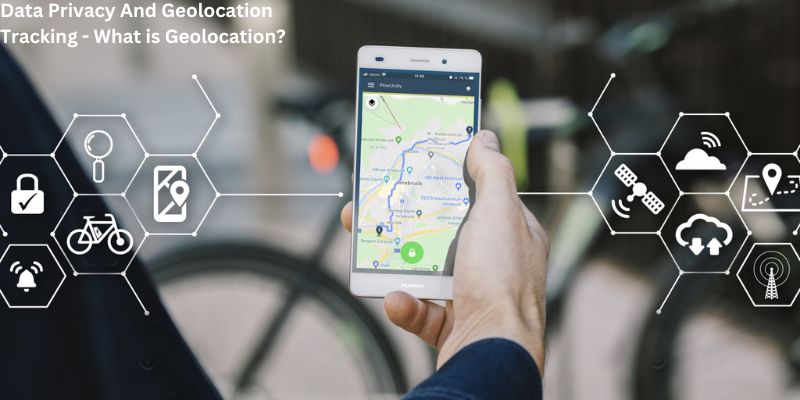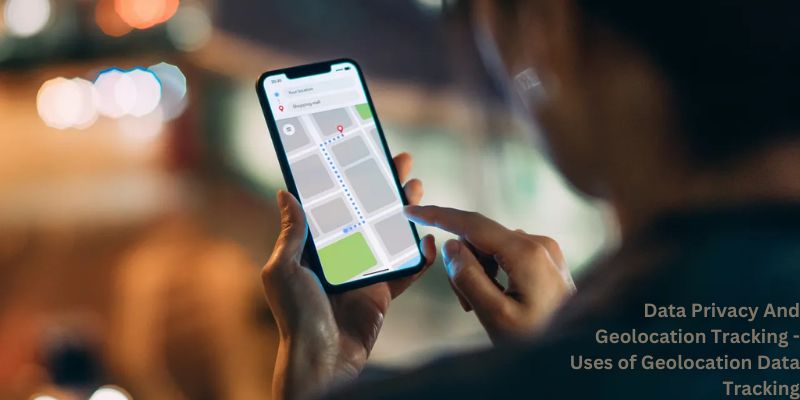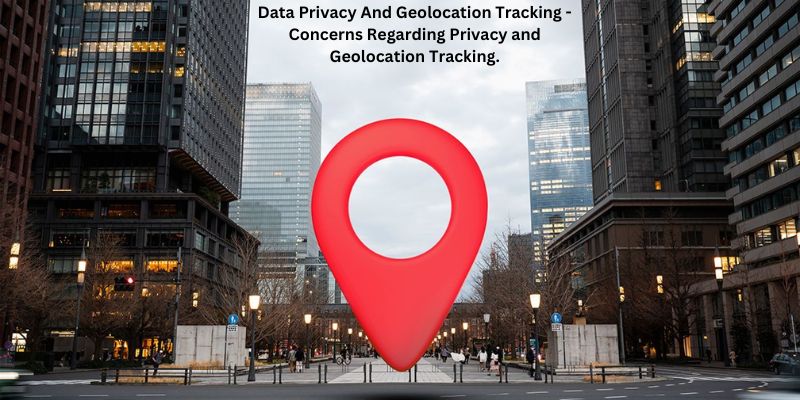Data privacy and geolocation tracking are two topics that have become increasingly relevant in today’s digital age. With the rapid advancement of technology, our personal information is more accessible than ever before. In this blog, earbudscity.com will help you explore the intricacies of data privacy and geolocation tracking. Join us as we delve into the complexities of these subjects and examine the ways in which they impact our lives.
1. Data Privacy And Geolocation Tracking – What is Geolocation?

Geolocation is a technique that determines a person’s longitudinal and latitudinal geographic location using information from an internet-connected device (such as a smartphone, computer, or fitness tracker). Due to the fact that geolocation technology can only determine a device’s position, if you leave your phone in your car for two hours while out to the movies, your geolocation history will reflect the actual location of your car throughout that time.
However, if you were wearing a smart watch or fitness tracker at the time, your geolocation may have been recorded in real-time and to a certain degree of precision. The average home has roughly 10 internet-connected gadgets, and many people carry numerous devices at once. For better geolocation results, these devices can be cross-referenced with one another. With over 3.6 billion smartphone users expected in 2020 and 5 million apps available across the Android and iPhone app stores, geolocation technology will become more and more commonplace.
2. Data Privacy And Geolocation Tracking – Uses of Geolocation Data Tracking

Due to the widespread usage of IP geolocation identification technology, users are now able to customize their offers to specifically meet the needs of their target markets. Users in several businesses have been able to over time thanks to geolocation tracking:
- Create targeted online marketing strategies: With the use of geolocation, advertisers and marketers may more easily geo-target their advertising efforts down to the postal code level. Because of this, their geolocation marketing strategies are tailored to the tastes of their target clients. As a result, they may broaden the appeal and usefulness of their efforts.
- Manage licenses and rights: With the use of technology, content distributors may distribute digital audio and video material while adhering to copyright and licensing agreements.
- Obtain pertinent web analytics: By utilizing location information, businesses may learn more about how well their websites are performing. They may utilize this information to make the required changes to their websites’ functionality and user experience.
- Prevent fraud: Analyzing locational data can help reveal fraudsters’ identities. Users can use geolocation data to verify the legitimacy of online transactions and spot irregularities (such as a consumer who unexpectedly places a purchase from a different continent). Despite the advantages of IP geolocation monitoring, some people worry that it can violate their privacy. We listed a few of the causes of these worries.
3. Data Privacy And Geolocation Tracking – Concerns Regarding Privacy and Geolocation Tracking.
While most individuals probably don’t mind being tracked while they use the internet, it’s quite another matter when it comes to their actual places. Below, we’ve identified a few privacy issues consumers have with geolocation monitoring.

Transparency – Data privacy and geolocation tracking
Some businesses that gather geolocation data are not open about why they do it or how they plan to utilize the data. Companies must disclose their data collecting procedures, including how data is gathered, shared, and preserved, in order to win users’ confidence. End-user licensing agreements (EULAs) for mobile apps must make mention of these explicitly. However, it’s more crucial that people have a choice about whether or not they want to be tracked.
Business espionage – Data privacy and geolocation tracking
Untrustworthy business leaders may use dishonest tactics to acquire a competitive edge. While utilizing geolocation tracking for more nefarious purposes, such as monitoring a competitor’s personnel, is not permitted, it is acceptable to use it to get an advantage over the competition by tracking website visitors, for example.
Stalking – Data privacy and geolocation tracking
Stalking is a privacy concern related to geolocation tracking. People who follow them on social media may unintentionally reveal their current position to everyone, including prospective stalkers. This information can be used by someone who might want to hurt them to find them in the real world and do them harm.
Getting in the way of personal life – Data privacy and geolocation tracking
While geolocation tracking is a useful tool for keeping track of employees’ whereabouts to guarantee their physical safety, for as when traveling, it is unacceptable to follow them about at all times, including after hours.
Surveillance – Data privacy and geolocation tracking
There is concern that law enforcement officials, including police officers, may use geolocation tracking to hunt down people of interest even when they are outside of their jurisdiction or without a warrant. Such actions against people who have not been proven guilty of anything might be seen as a sort of harassment.
Conclusion
In conclusion, data privacy and geolocation tracking are two interconnected issues that require careful consideration and protection. While geolocation tracking offers various benefits and conveniences, such as personalized services and location-based recommendations, it also poses potential risks to individuals’ privacy and security.



